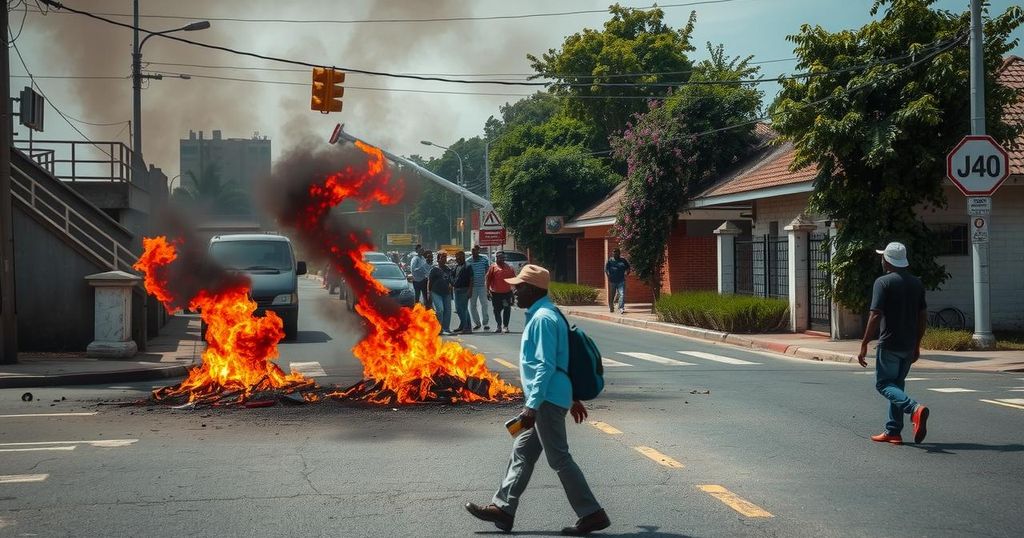Mozambique’s Major Cities Experience Disruption Amid Post-Election Unrest

Mozambique faces violent unrest in major cities following the October 2024 elections. Protests erupted after the Constitutional Council upheld the ruling Frelimo party’s results, with claims of electoral fraud. Significant disruptions, looting, and clashes with police have led to numerous deaths. The UN calls for dialogue and peace amid rising tensions in the country.
Major cities across Mozambique faced significant disruption on Friday as violent unrest erupted following the results of the October presidential election. Banks and businesses closed in the capital city, Maputo, as transportation and trade came to a standstill due to opposition-led demonstrations marred by looting and vandalism. The turmoil intensified after the Constitutional Council confirmed the ruling Frelimo party’s victory, which extended its 50-year hold on power. Opposition parties and their supporters have taken to the streets to protest the election outcome, claiming widespread vote rigging and demanding a change in governance.
The unrest led to tragic incidents, including the death of at least 11 people in a fire at a looted food warehouse in the Benfica neighborhood of Maputo. Witnesses reported widespread chaos, including looting of electronic items and appliances. Local residents expressed their frustration with the current regime, signifying a collective exhaustion from ongoing conflict and a desire for democratic change. Police officials have described the attackers as criminals engaged in organized violence against businesses and the community.
Opposition leader Venancio Mondlane has accused law enforcement of inciting violence and chaos amidst the protests, calling for continued demonstrations while urging supporters to refrain from looting. His claims highlight the government’s perceived failures in the electoral process and its handling of dissent. Meanwhile, the violent protests have resulted in significant casualties, with reports indicating that over 248 people have died during the civil unrest, including casualties from a recent prison riot where approximately 1,500 inmates escaped amid the chaos.
The UN Secretary-General Antonio Guterres has expressed grave concern over the deteriorating situation, urging for political dialogue and advocating for the cessation of violence. In light of the ongoing turmoil, he emphasized the need for all political entities in Mozambique to collaborate towards achieving a peaceful resolution to the crisis. The situation remains precarious as the country grapples with its political future.
The unrest in Mozambique follows the conclusion of a highly contested presidential election held in October 2024. The ruling party, Frelimo, has maintained its influence since the end of civil war in 1975, but the recent election results have sparked outrage among opposition groups who allege significant irregularities. The confirmation of Daniel Chapo’s victory by the Constitutional Council was met with widespread discontent, igniting protests across major cities, particularly Maputo and Matola. As the situation escalates, communities are facing severe disruptions to daily life along with fears over deteriorating public safety and human rights.
The unrest in Mozambique represents a serious escalation in political tensions following the confirmation of election results by the Constitutional Council. As public outrage mounts against perceived injustices in the electoral process, calls for reform and dialogue grow ever louder. Both the loss of life and the scale of violence underscore the urgent need for resolution and the establishment of a democratic framework that represents the will of the Mozambican people. The role of international bodies such as the United Nations may prove vital in diffusing tensions and fostering a pathway towards stability.
Original Source: www.dw.com







